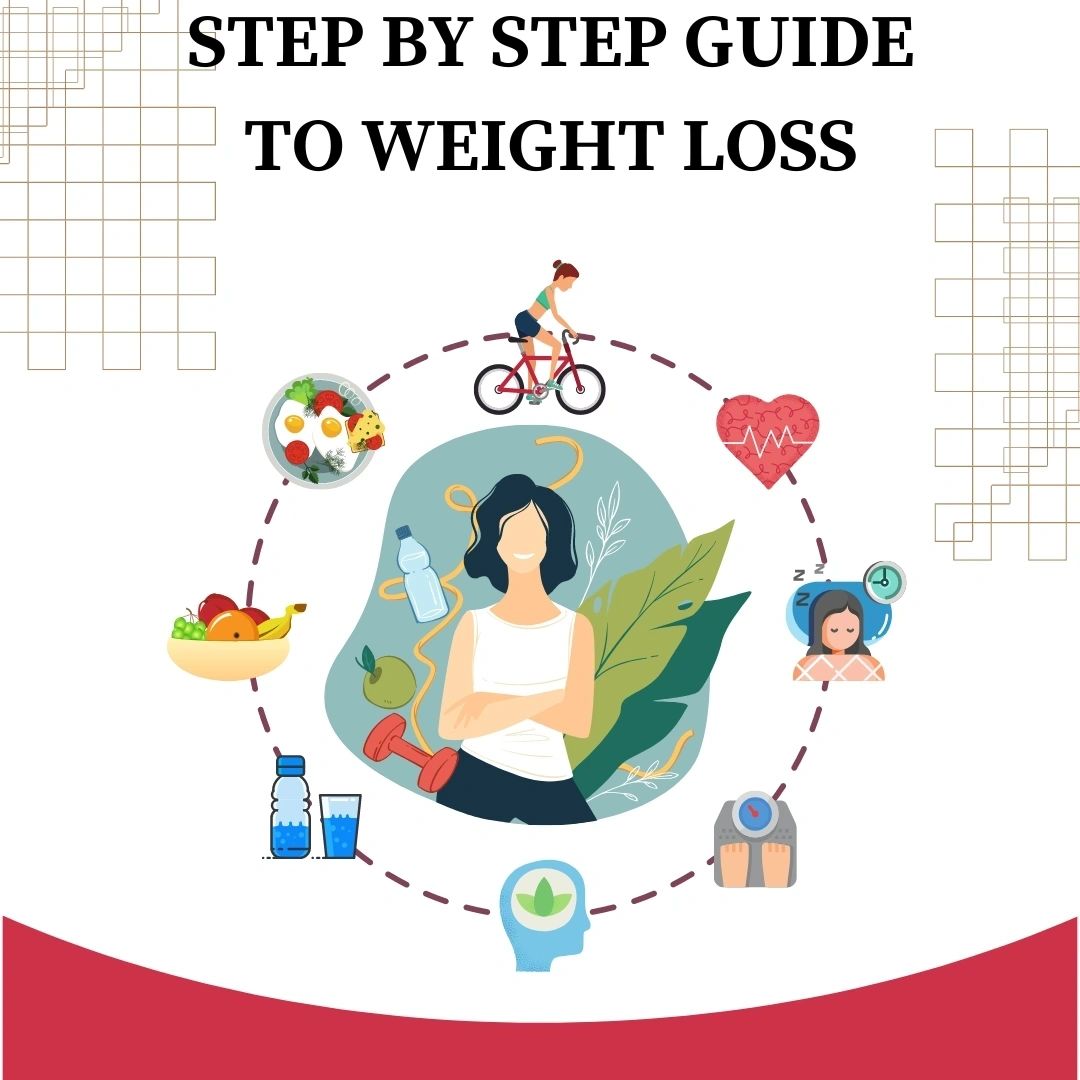Step by Step Guide to Weight Loss

1. Set Realistic Goals: Determine a reasonable weight loss goal that you can achieve over time. Aim for a gradual and steady weight loss of about 1-2 pounds (0.5-1 kg) per week.

2. Healthy Eating:
Balanced Diet: Focus on a balanced diet that includes a variety of nutrients. Eat lean proteins, whole grains, fruits, vegetables, and healthy fats.
Portion Control: Be mindful of portion sizes to avoid overeating. Use smaller plates and bowls to help with portion control.
Cut Back on Processed Foods: Limit highly processed foods that are often high in added sugars, unhealthy fats, and empty calories.
3. Caloric Intake:
Caloric Deficit: Weight loss occurs when you consume fewer calories than you burn. Calculate your daily caloric needs and aim for a moderate caloric deficit. A deficit of 500 to 1000 calories per day can lead to a safe and sustainable weight loss.

4. Regular Physical Activity:
Cardiovascular Exercise: Engage in regular aerobic activities like walking, jogging, swimming, or cycling to help burn calories and improve cardiovascular health.
Strength Training: Incorporate strength training exercises to build lean muscle mass. Muscle burns more calories at rest than fat.
Consistency: Aim for at least 150 minutes of moderate-intensity aerobic activity or 75 minutes of vigorous-intensity aerobic activity per week, along with muscle-strengthening activities on two or more days per week.
5. Stay Hydrated:
Drinking enough water helps control your appetite and supports your body’s metabolism. Aim for about 8 glasses (64 ounces) of water a day, but individual needs vary.
6. Sleep and Stress Management:
Prioritize quality sleep as it affects hunger hormones and overall well-being.
Manage stress through techniques like meditation, deep breathing, yoga, or engaging in hobbies you enjoy.
7. Mindful Eating:
Pay attention to your body’s hunger and fullness cues. Eat slowly and savor your meals to avoid overeating.

8. Keep Track:
Keep a food journal or use a mobile app to track your food intake, exercise, and progress. This can help you stay accountable and identify areas for improvement. MyFitnessPal is a very popular online food tracker that we use here at On Fiya Fitness.
9. Seek Professional Guidance:
Consult a registered dietitian or a healthcare professional before making significant dietary changes, especially if you have underlying health conditions.
10. Consistency and Patience:
Sustainable weight loss takes time and consistent effort. Avoid crash diets or extreme restrictions that are not maintainable in the long run.
Remember that individual responses to weight loss strategies can vary. It’s essential to find an approach that works for you and supports your overall health and well-being. If you encounter challenges or have specific health concerns, consider seeking guidance from professionals who specialize in weight management.









Leave a comment